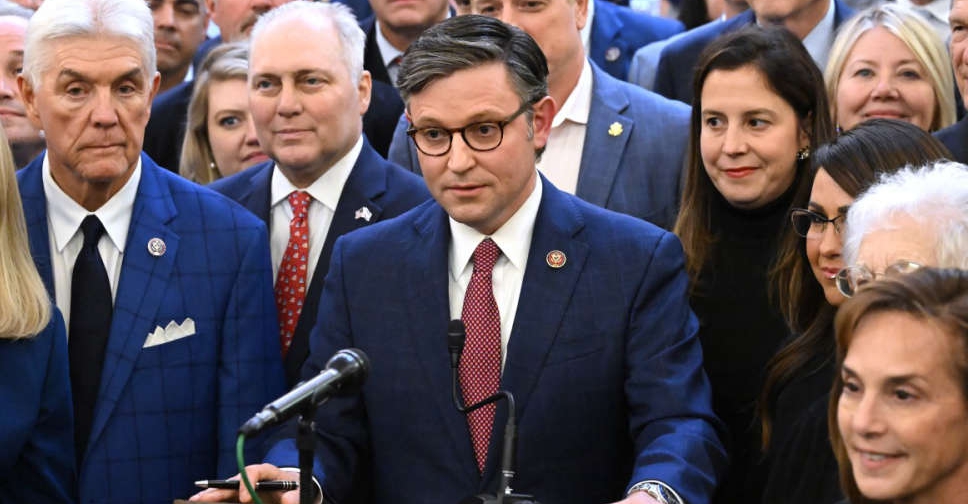
The US House of Representatives elected Republican Mike Johnson, a conservative with little leadership experience, as its speaker on Wednesday.
The 220 to 209 vote elevated third-term congressman Johnson, 51, to a speaker's chair that has been vacant since Kevin McCarthy was ousted on October 3 by a small group of hardline Republicans angry about a deal with Democrats that averted a partial government shutdown.
In the weeks that followed, Republicans who narrowly control the House considered and rejected three possible replacements before settling on Johnson, a Louisiana lawyer backed by former President Donald Trump who spent years advancing conservative policies like school prayer.
First elected in 2016, Johnson will be the least experienced House speaker in decades. He is best known as the author of an unsuccessful appeal by 126 House Republicans after the 2020 presidential election to get the Supreme Court to overturn election results in states that Trump had lost.
Johnson declined to answer a question about that effort shortly after his nomination on Tuesday night, while other Republicans booed and heckled the reporter who asked it.
In a letter to colleagues, Johnson has vowed to advance overdue spending legislation and ensure that the US government does not shut down when current funding expires on November 17.
He will also have to respond to Democratic President Joe Biden's $106 billion spending request for aid to Israel, Ukraine and US border security. While his Republicans broadly support funding for Israel and the US border, they are divided over further support for Ukraine.
While House leaders typically focus on fundraising and vote counting, Johnson is better known as an advocate for conservative social positions.
He has supported legislation that bars gender-related surgery and hormone treatment for transgender teens, prohibits mask mandates on airplanes, and tightens immigration and abortion restrictions.
Republicans narrowly control the House by a 221-212 margin, leaving them with little room for error on controversial votes. Their divisions were on display over the past few weeks, as they nominated three candidates for speaker -- Steve Scalise, Jim Jordan and Tom Emmer -- but were unable to provide the 217 votes needed to win the speaker's gavel.
As speaker, Johnson will have to confront the same challenges that felled McCarthy and stymied his would-be successors.
They include the demands of the caucus' hardline members and the reality that with a Democratic majority in the Senate and Biden occupying the Oval Office, no laws can currently be passed in Washington without bipartisan support.



 Israeli attacks on Gaza killed 60 people in 24 hours
Israeli attacks on Gaza killed 60 people in 24 hours
 Trump fires National Security Agency director
Trump fires National Security Agency director
 Israel steps up Syria strikes, says Turkey aims for 'protectorate'
Israel steps up Syria strikes, says Turkey aims for 'protectorate'
 US sending Israel 20,000 assault rifles that Biden delayed
US sending Israel 20,000 assault rifles that Biden delayed



